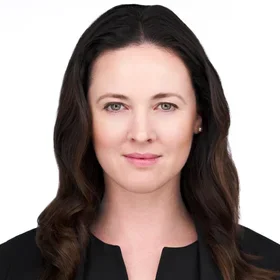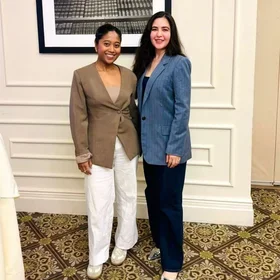What sparked your interest in studying Negotiation and Conflict Resolution (NECR)?
I had three considerations when I was looking at programs. The first pertained to NECR as a course of study. I thought at the time, and still do, that the skills learned in NECR are universally applicable in personal and professional relationships. In addition, I thought that the sheer breadth of the program would give me (and has given me!) flexibility and, most importantly, time to reflect and figure out the next step of my career. Another consideration for me was practical; I needed something nontraditional and NECR afforded me the ability to work in a demanding full-time job, while still studying and attending classes on my evenings and weekends. The final consideration is a more personal one. In February 2002, as an undergraduate, I was involved in a hostage standoff at Fairfield University in Connecticut. The situation ended peacefully, and I believe that this was due to the extraordinary communication and empathy demonstrated by the Fairfield Police Department negotiators. In being attracted to NECR, I felt that learning these same skills could afford me an opportunity to make a positive contribution in the world, as those officers made a positive contribution to mine.
Can you tell us about your experience in the program?
My experience in the program was incredibly positive. I expected that my focus would be a bit more international but as the program progressed, I learned that I was most interested in the communication and self-awareness aspects of the coursework. At the time, work and school made me feel that my life was absolute chaos punctuated with moments of tremendous clarity. During these moments I could connect lessons from class to interactions with friends and colleagues and also, interestingly, to international conflict. I loved how many of the professors were willing to meet with me for coffee or in office hours to discuss career questions, research direction, and class projects. I felt that the relatively small size of the program meant that everyone had a place and our successes were the program’s successes. It is unusual and valuable to have such a boutique program within a large institution like Columbia.
Since graduating, what professional direction did you take and have you been able to use your NECR knowledge in your field of work?
Since graduating, I began working with Pacific Forum CSIS in Honolulu, Hawaii. Pacific Forum is a nonprofit, private, foreign policy research institute, founded by Admiral Lloyd R. Vasey in 1975. During an attack on his submarine in the Pacific theater in World War II, Admiral Vasey decided that if he lived through the war, he would come up with a better way for the United States and the Asia-Pacific to communicate and build bridges in order to avoid war as a solution to conflict. After retiring from the Navy, he founded the Pacific Forum to be that ‘better way.’ My first role at PacForum was as a James A. Kelly Fellow in Korean Studies. For my research, I took what I learned during my capstone and began to look at creating an environmental framework for engagement with the Democratic People’s Republic of Korea. After a few months in the fellowship, I have since put the research aside temporarily for a full-time position as the Director of the Pacific Forum Young Leaders Program. The program brings young leaders from 22-35 years old who have educational or professional experience in Asia-Pacific security issues and an aptitude for diplomacy together to participate in conferences and seminars with senior leaders in the field. Lessons learned in NECR are reflected in our program’s mission. We aim to introduce diverse views to the conversation about transpacific security issues and to create a network of next-generation opinion leaders. We are hopeful that this will make communication more effective among states and people and make conflict across the Pacific less likely. In my daily life, NECR undergirds my cross-cultural communication, management, and ability to establish sustainable networks.
What advice do you have for someone who is considering a degree in Negotiation and Conflict Resolution?
Pay attention! This means pay attention to your professors, many of whom have developed the top scholarship in the field. Pay attention to your peers, who are a good sounding board for new ideas and a can be a tool for seeing how you are perceived and received in the world. And, most importantly, listen to your gut and get to know yourself better. NECR is the kind of program that can provide a lifetime’s worth of self-awareness, which can make you not only a better friend and colleague, but a more marketable professional in any field.


